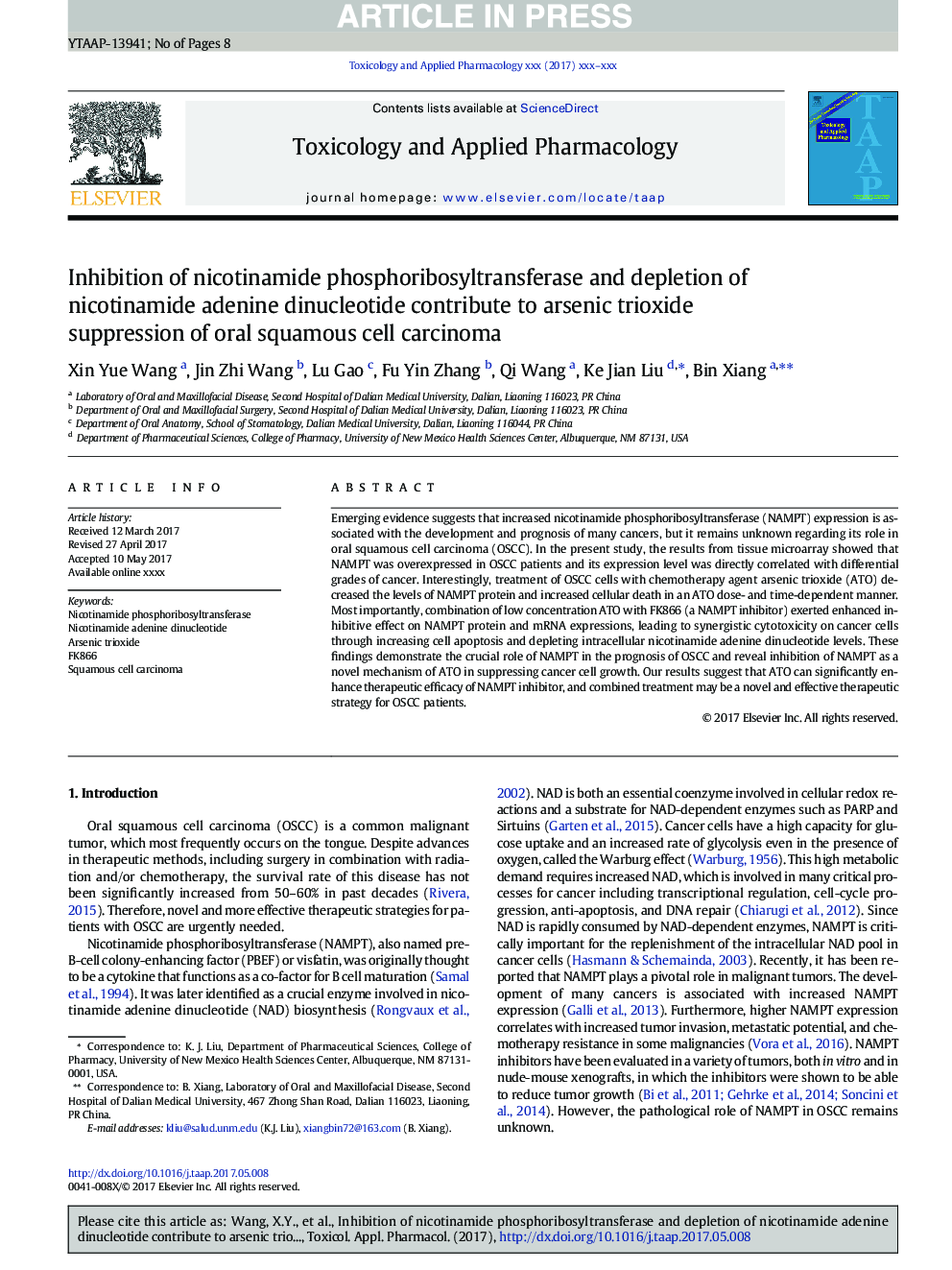| کد مقاله | کد نشریه | سال انتشار | مقاله انگلیسی | نسخه تمام متن |
|---|---|---|---|---|
| 5558286 | 1561131 | 2017 | 8 صفحه PDF | دانلود رایگان |
عنوان انگلیسی مقاله ISI
Inhibition of nicotinamide phosphoribosyltransferase and depletion of nicotinamide adenine dinucleotide contribute to arsenic trioxide suppression of oral squamous cell carcinoma
ترجمه فارسی عنوان
مهار نیکوتین آمید فسفریبوسیل ترانسفراز و کاهش نیکوتین آمید آدنین دینکلوتید به کاهش سرطان سلول سنگفرشی دهانی کمک می کند.
دانلود مقاله + سفارش ترجمه
دانلود مقاله ISI انگلیسی
رایگان برای ایرانیان
کلمات کلیدی
موضوعات مرتبط
علوم زیستی و بیوفناوری
علوم محیط زیست
بهداشت، سم شناسی و جهش زایی
چکیده انگلیسی
Emerging evidence suggests that increased nicotinamide phosphoribosyltransferase (NAMPT) expression is associated with the development and prognosis of many cancers, but it remains unknown regarding its role in oral squamous cell carcinoma (OSCC). In the present study, the results from tissue microarray showed that NAMPT was overexpressed in OSCC patients and its expression level was directly correlated with differential grades of cancer. Interestingly, treatment of OSCC cells with chemotherapy agent arsenic trioxide (ATO) decreased the levels of NAMPT protein and increased cellular death in an ATO dose- and time-dependent manner. Most importantly, combination of low concentration ATO with FK866 (a NAMPT inhibitor) exerted enhanced inhibitive effect on NAMPT protein and mRNA expressions, leading to synergistic cytotoxicity on cancer cells through increasing cell apoptosis and depleting intracellular nicotinamide adenine dinucleotide levels. These findings demonstrate the crucial role of NAMPT in the prognosis of OSCC and reveal inhibition of NAMPT as a novel mechanism of ATO in suppressing cancer cell growth. Our results suggest that ATO can significantly enhance therapeutic efficacy of NAMPT inhibitor, and combined treatment may be a novel and effective therapeutic strategy for OSCC patients.
ناشر
Database: Elsevier - ScienceDirect (ساینس دایرکت)
Journal: Toxicology and Applied Pharmacology - Volume 331, 15 September 2017, Pages 54-61
Journal: Toxicology and Applied Pharmacology - Volume 331, 15 September 2017, Pages 54-61
نویسندگان
Xin Yue Wang, Jin Zhi Wang, Lu Gao, Fu Yin Zhang, Qi Wang, Ke Jian Liu, Bin Xiang,
